Global Green Growth Institute
The Global Green Growth Institute (GGGI) is a treaty-based international organization headquartered in Seoul, South Korea. The organization aims to promote green growth, a growth paradigm that is characterized by a balance of economic growth and environmental sustainability. GGGI provides research and stakeholder engagement for green growth plans, especially in developing countries, aiming to replace the more typical paradigm based on industrial development.
 | |
| Abbreviation | GGGI |
|---|---|
| Formation | 2010 |
| Type | Intergovernmental organization |
| Purpose | To promote sustainable development of developing and emerging countries[1] |
| Headquarters | Seoul, Republic of Korea |
| Coordinates | 37.567459°N 126.971078°E |
| Fields | Sustainable development |
Membership (2019) | 30 Member States[2] |
Director-General | Frank Rijsberman[1] |
Budget (2017) | US$56.88 million [1] |
| Website | www.gggi.org |
Founded to support green economic growth that simultaneously addresses poverty reduction, job creation, social inclusion, and environmental sustainability, GGGI works across four priority areas that are considered to be essential to transforming national economies, including energy, water, land use, and green cities.
GGGI envisions a resilient world achieved through strong, inclusive, and sustainable green growth, and is dedicated to supporting the transition of GGGI Member countries toward a green growth model. In pursuit of these goals, GGGI works with developing and emerging countries to design and deliver programs to demonstrate new pathways for pro-poor, sustainable economic growth.
GGGI supports stakeholders through the delivery of comprehensive products and services designed to assist in developing, financing, and mainstreaming green growth to support the implementation of national economic development priorities and international commitments.
History
GGGI was first launched as a think tank in 2010 by Korean President Lee Myung-bak,[3] and was later converted into an international treaty-based organization in 2012 at the Rio+20 Summit in Brazil.[4]
Work
Since its inception, it is engaged in multilateral developmental projects.
Working across the thematic priorities of sustainable energy, green cities, sustainable landscapes, and water & sanitation, GGGI aims to deliver impact through six strategic outcomes:
GHG emission reduction Creation of green jobs Increased access to sustainable services, such as clean affordable energy, sustainable public transport, improved sanitation, and sustainable waste management Improved air quality An adequate supply of ecosystem services Enhanced adaptation to climate change[5]
Membership
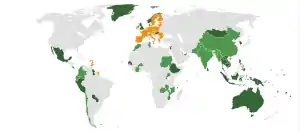
Partner States
Partner Organisations
The Institute is a treaty-based organization, which requires the ratification of the Agreement on the Establishment of the Global Green Growth Institute to become a Party to the Agreement. Regional integration organizations can also become members of the Institute by ratifying the Agreement.[6]
Member States
The following are the Member States of the Institute:[2]
.svg.png.webp) Australia
Australia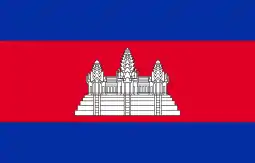 Cambodia
Cambodia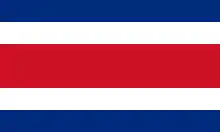 Costa Rica
Costa Rica Denmark
Denmark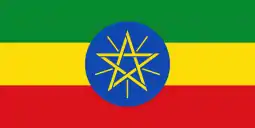 Ethiopia
Ethiopia Fiji
Fiji Guyana
Guyana Hungary
Hungary Indonesia
Indonesia Jordan
Jordan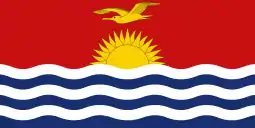 Kiribati
Kiribati Republic of Korea
Republic of Korea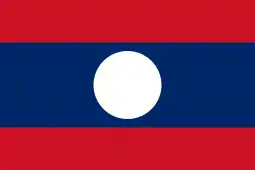 Lao People's Democratic Republic
Lao People's Democratic Republic Mexico
Mexico Mongolia
Mongolia Norway
Norway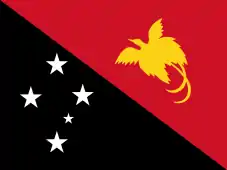 Papua New Guinea
Papua New Guinea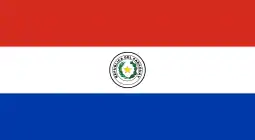 Paraguay
Paraguay Peru
Peru Philippines
Philippines Qatar
Qatar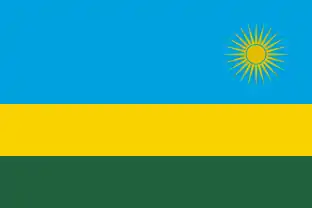 Rwanda
Rwanda Senegal
Senegal Sri Lanka
Sri Lanka Thailand
Thailand Tonga
Tonga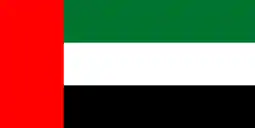 United Arab Emirates
United Arab Emirates United Kingdom
United Kingdom Vanuatu
Vanuatu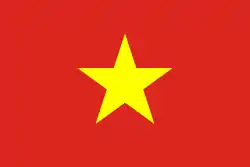 Vietnam
Vietnam
Partner States
The following are the Partner States of the Institute:[2]
- Currently in the process of accession to the Agreement
Partner Organisations
The following are the Partner Organisations of the Institute:[2]
Activities
GGGI works as a neutral trusted advisor to government in pursuit of 6 major strategic outcomes: green house gas emission reductions, the creation of green jobs, enhanced access to sustainable services, improved air quality, enhanced ecosystem services, and enhanced adaptation to climate change. To achieve these six strategic outcomes the organization engages with government counterparts to provide sectoral and socio-economic impact assessments to experience, develop and apply practical tools and case studies; develop green growth plans at national or sectoral level; assess and design legal and institutional frameworks; provide financial and investment analysis that looks at both investment requirements and potential sources; and develop sectoral and sub-sectoral investment plans and frameworks.[7]
Green growth plans in developing countries
GGGI has worked to provide research and develop green growth plans for sixteen developing countries: Brazil, Cambodia, China, Ethiopia, India, Indonesia, Kazakhstan, Mongolia, Morocco, Peru, Philippines, Rwanda, South Africa, Thailand, United Arab Emirates, and Vietnam.[8] On June 27, 2014, GGGI and the UN Environment Programme announced a new partnership to cooperate in promoting green growth strategies and action plans in countries around the world.[9]
Green Growth Knowledge Platform
On January 11, 2012, a Memorandum of Understanding was signed between GGGI, the UNEP, OECD, and the World Bank to establish the Green Growth Knowledge Platform.[10] This signing was followed by the inaugural Green Growth Knowledge Platform conference in Mexico City.[10]
Relationship with other international bodies
United Nations General Assembly
In December 2013, GGGI was granted Observer Status by the United Nations General Assembly. The status gives GGGI the right to speak at General Assembly meetings and sponsor and sign resolutions. GGGI will also be able to cast procedural votes. Observers are not allowed to vote on resolutions.[11]
United Nations Framework Convention on Climate Change
In November 2013, GGGI was granted status as an Intergovernmental Observer Organization to the United Nations Framework Convention on Climate Change (UNFCCC) at the Nineteenth Conference of Parties (COP) to the UNFCCC.[12] In June 2015, GGGI and the UNFCCC signed an Memorandum of Understanding to work together on activities aimed at addressing green growth issues in developing countries, by fostering climate resilient and low-emission development that will achieve stabilization of greenhouse gas (GHG) concentration in the atmosphere.[13]
Green Climate Fund
In January 2015, GGGI was accredited as an observer organization to the Green Climate Fund (GCF). The GCF was established by the Parties at the 2010 United Nations Framework Convention on Climate Change (UNFCCC) conference held in Cancun, Mexico, and designated as an operating entity of the Convention’s financial mechanism. GGGI supports its government partners to access project readiness funding under the GCF readiness program. As of November 2018, GGGI has supported 8 of its partner governments in successfully accessing readiness funding, including Vanuatu, Mongolia, Papua New Guinea, Thailand, Lao PDR, Rwanda, Jordan and Indonesia.
Organisation for Economic Co-operation and Development
GGGI is a founding member of the Green Growth Knowledge Platform together with the OECD. In June 2013, GGGI was granted Official Development Assistance (ODA) eligibility status by the Organisation for Economic Co-operation and Development – Development Assistance Committee (OECD-DAC). GGGI is an observer to the OECD Development Assistance Committee Network on Environment and Development Co-operation (DAC ENVIRONET).
Multilateral Development Banks and UN Regional Commissions
At the Twenty First Conference of the Parties to the United Nations Framework Convention on Climate Change, GGGI together with the multilateral development banks and United Nations regional commissions launched an Inclusive Green Growth Partnership. The Partnership aims to support developing countries to identify green growth opportunities and investments that promote inclusive, shared prosperity, and equitable growth that creates employment and raises the incomes of the poorest. The founding members of the Partnership are GGGI, Asian Development Bank, African Development Bank, Inter-American Development Bank, United Nations Economic Commission for Africa, United Nations Economic Commission for Latin America and the Caribbean, United Nations Economic and Social Commission for Asia and the Pacific, and United Nations Economic and Social Commission for Western Asia.[14]
Global Commission on the Economy and Climate
GGGI is a research partner for the Global Commission on the Economy and Climate's New Climate Economy project. GGGI works together with the World Resources Institute, Climate Policy Initiative, Ethiopian Development Research Institute, Indian Council for Research on International Economic Relations, London School of Economics and Political Science, Overseas Development Institute, Stockholm Environment Institute, and Tsinghua University.[15] The Global Commission is composed of former heads of government and finance ministers, and leaders in the fields of economics, business and finance, and chaired by former President of Mexico Felipe Calderón.[16]
Structure
The Institute's structure consists of: an Assembly, a Council, a Secretariat and an Advisory Committee.[6]
Assembly
The Assembly is the supreme organ of GGGI and is composed of all Member States. It meets every two years, where it elects members to the Council, appoints the Director-General, and reviews progress made towards the Institute's objectives. Additionally, the Assembly advises on the overall direction of the Institute's work.[6]
The Assembly elects one President and two Vice-Presidents for two-year terms to serve on its bureau. The current leadership of the Assembly is as follows:
 Ban Ki-moon, President[17]
Ban Ki-moon, President[17] Republic of Korea, Vice-President [18]
Republic of Korea, Vice-President [18] Ethiopia, Vice-President[18]
Ethiopia, Vice-President[18]
Council
The Council is the executive organ of Institute and, under the guidance of the Assembly, is responsible for directing the activities of GGGI. Some of its duties include: nominating new Directors-General, approving the annual work program and budget, approving audited financial statements and approving the admission of new members to the Advisory Committee.[6]
The Council consists of no more than seventeen members under the following terms:
- Five contributing members, elected by the Assembly for two-years terms
- Five participating members, elected by the Assembly for two-years terms
- Five experts or non-state actors, appointed by the Council for two-years terms
- A permanent seat for the host country
- The Director-General
Additionally, the Council elects one Chair and two Vice-Chairs to form its bureau. The current leadership of the Council is as follows:
 Ban Ki-moon, Chair[19]
Ban Ki-moon, Chair[19] Republic of Korea, Vice-Chair[20]
Republic of Korea, Vice-Chair[20] Ethiopia, Vice-Chair[20]
Ethiopia, Vice-Chair[20]
Current members of the Council
Secretariat
The Secretariat is the chief operational organ of the Institute. The Secretariat is led by a Director-General whose duties include: providing strategic leadership, preparing operational and financial documents, report on the implementation of the Institute's activities, implementing of the decisions of the Assembly and Council and representing the GGGI externally.[6]
The Secretariat is based in Seoul, Republic of Korea and has operations in 24 other countries. The current Director-General is Dr. Frank Rijsberman.
Previous Directors-General
| Name | Country | Term |
|---|---|---|
| Richard Samans | 2011 - 2013 | |
| Howard Bamsey | 15 April 2013 - 27 February 2014 | |
| Yvo de Boer | 15 April 2014 - 14 April 2016 | |
| Frank Rijsberman | 1 October 2016 – Present |
Advisory Committee
The Advisory Committee is an advisory organ of the Institute. It serves as a forum allowing for public-private cooperation on green growth, while also advising the Council on the strategy and activities of the GGGI. It is composed of the experts non-state actors. There is no limit on the membership of the Advisory Committee.[6]
See also
|
|
References
- "Annual Report 2017" (PDF). Global Green Growth Institute. Global Green Growth Institute. May 2018. Retrieved 23 February 2019.
- "Partners". Global Green Growth Institute. Global Green Growth Institute. n.d. Retrieved 23 February 2019.
- "About GGGI: Organizational Overview". Global Green Growth Institute. Archived from the original on 4 June 2015. Retrieved 16 July 2014.
- "Green Growth for All: Converting the Global Green Growth Institute". United Nations Conference on Sustainable Development. Archived from the original on 5 September 2015. Retrieved 16 July 2014.
- http://gggi.org/about/
- "Agreement on the Establishment of the Global Green Growth Institute" (PDF). Global Green Growth Institute. Global Green Growth Institute. 20 June 2012. Retrieved 23 February 2019.
- "About GGGI: How we work". gggi.org. Global Green Growth Institute. Retrieved 2 November 2018.
- "GGGI Activities: Countries". Global Green Growth Institute. Archived from the original on 4 June 2015. Retrieved 16 July 2014.
- "GGGI inks preliminary deal with UNEP to promote green economy". Global Post. Yonhap News Agency. Archived from the original on 26 July 2014. Retrieved 17 July 2014.
- "Global Organizations to Expand Cooperation on Green Growth for Development [Press Release]" (PDF). OECD. Retrieved 16 July 2014.
- http://gggi.org/gggi-receives-un-general-assembly-observer-status/
- http://gggi.org/gggi-granted-igo-observer-status-at-cop-19/
- "Archived copy". Archived from the original on 2017-10-10. Retrieved 2016-11-17.CS1 maint: archived copy as title (link)
- http://gggi.org/wp-content/uploads/2016/06/GGGI-2015-Annual-Report_web.compressed.pdf
- http://newclimateeconomy.net/content/research-partners
- "Archived copy". Archived from the original on 2016-11-17. Retrieved 2016-11-17.CS1 maint: archived copy as title (link)
- "Decision on the Election of President of the Assembly" (PDF). Global Green Growth Institute. Global Green Growth Institute. 20 February 2018. Retrieved 23 February 2019.
- "Decision on the election of the Vice-Presidents of the Assembly" (PDF). Global Green Growth Institute. Global Green Growth Institute. 4 May 2017. Retrieved 23 February 2019.
- "Decision on the Election of Chair of the Council" (PDF). Global Green Growth Institute. Global Green Growth Institute. 20 February 2018. Retrieved 23 February 2019.
- "Decision on the election of the Vice-Chairs of the Council" (PDF). Global Green Growth Institute. Global Green Growth Institute. 4 May 2017. Retrieved 23 February 2019.
- "Note on the Election of Members to Serve on the Council for the Period January 1, 2019-December 31, 2020" (PDF). Global Green Growth Institute. Global Green Growth Institute. 3 September 2018. Retrieved 23 February 2019.
- "Decision on Election of Members to the Council for the Period January 1, 2019 – December 31, 2020" (PDF). Global Green Growth Institute. Global Green Growth Institute. 7 December 2018. Retrieved 23 February 2019.